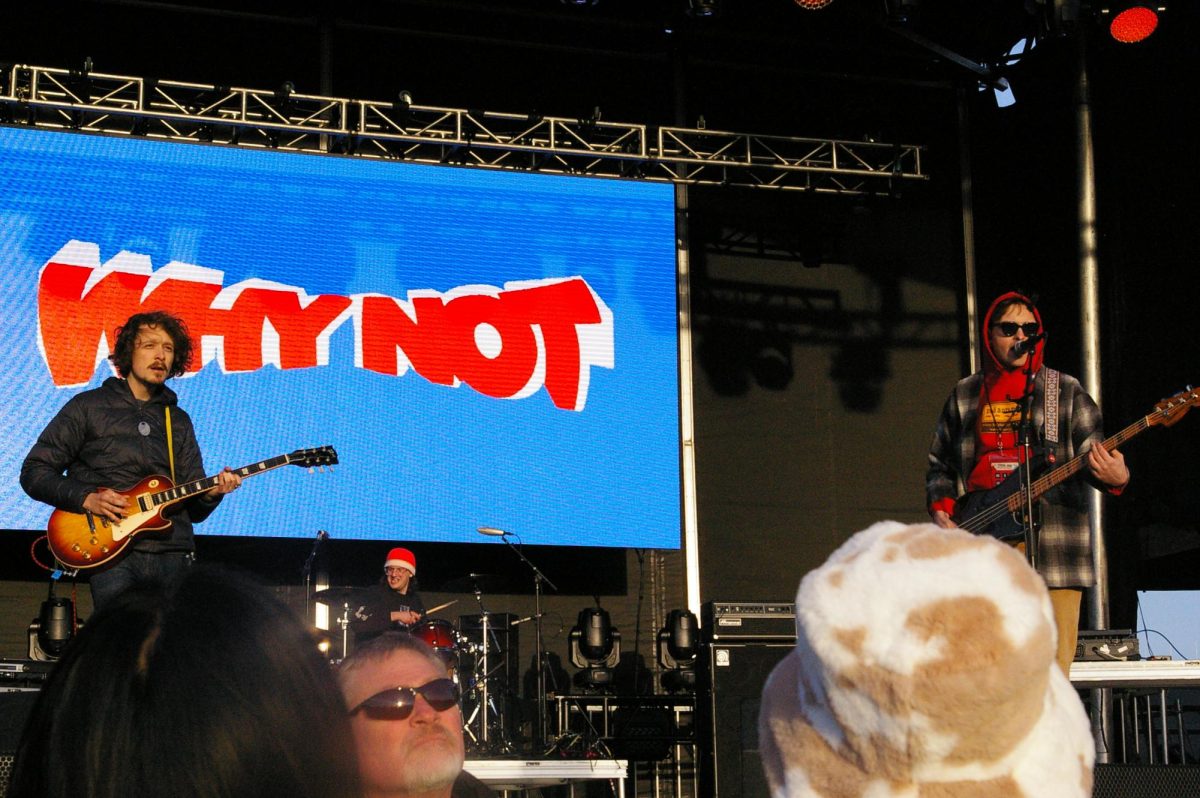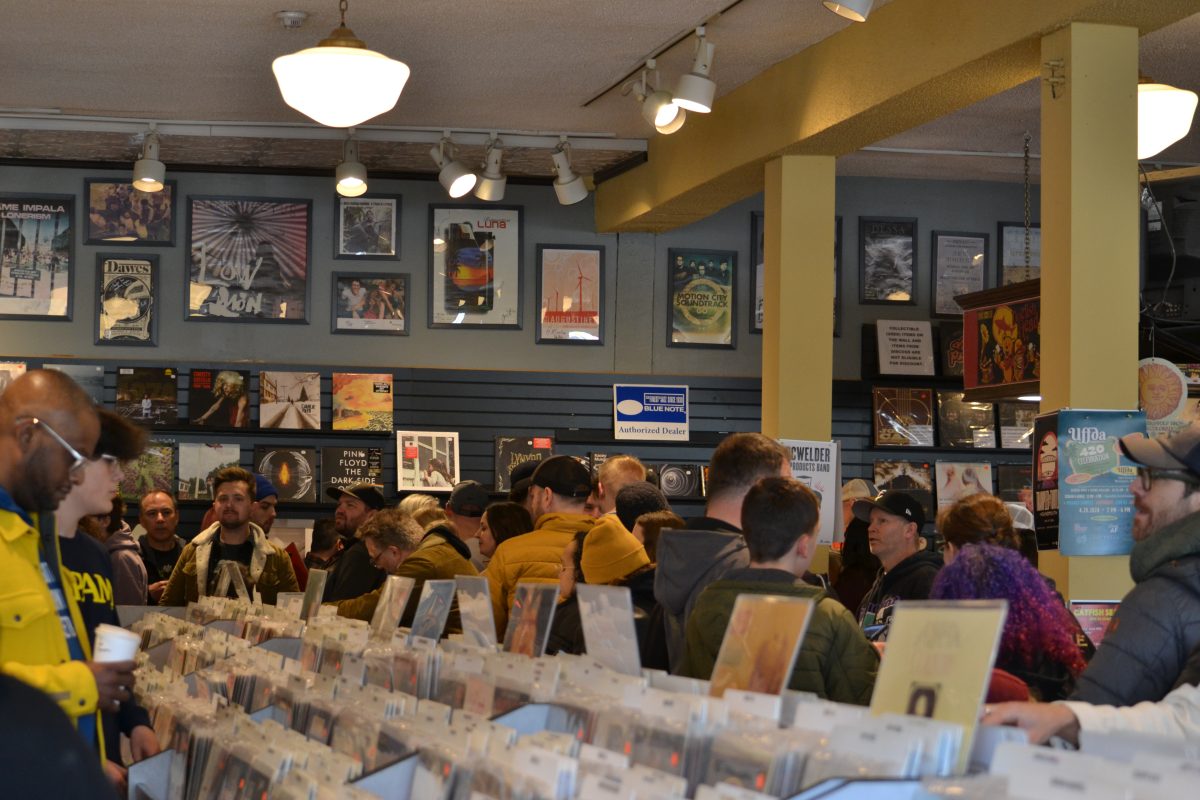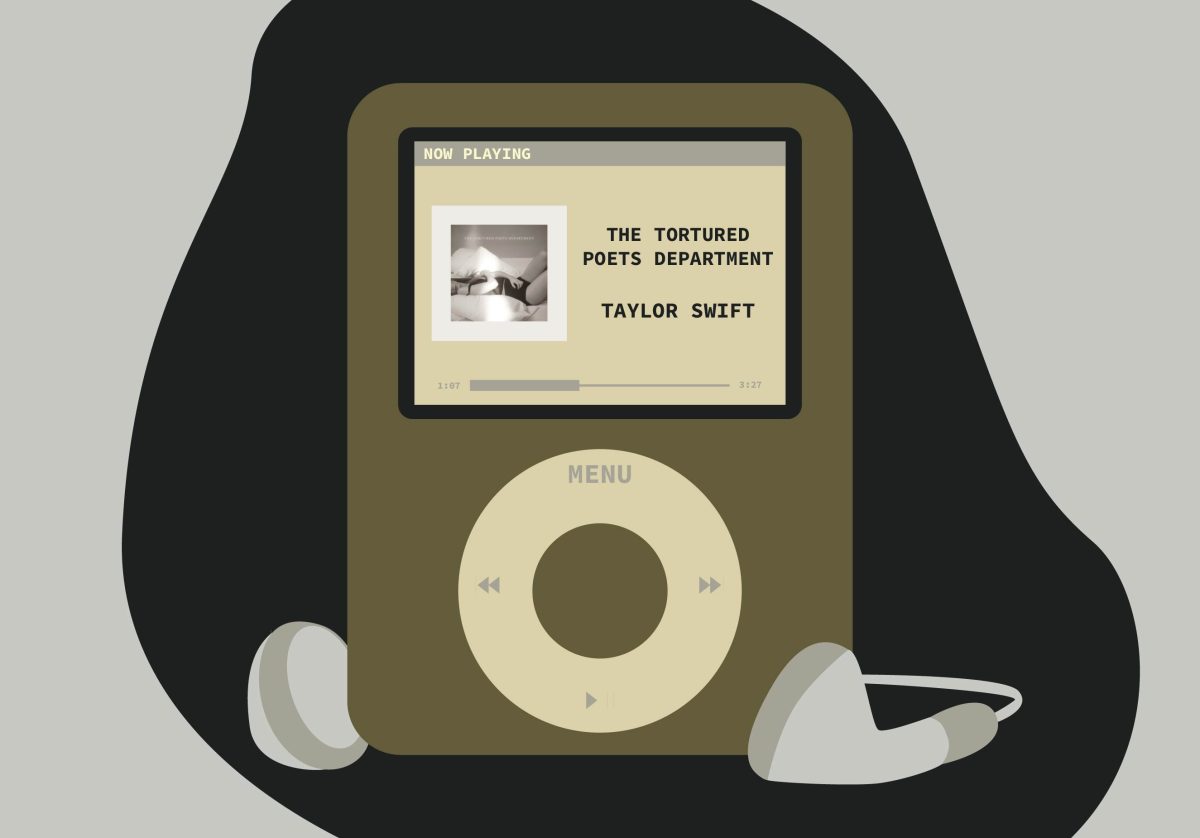There are people who will hear Minneapolis rapper P.O.S.’ debut, “Ipecac Neat,” and with knowledge of his background – a black kid raised on punk rock – try to rationalize the album. They’ll try to divorce it from the hip-hop aesthetic, label it some sort of rap-punk hybrid.
They shouldn’t.
During the last couple of years, a few critics and fans have been on a whitewashing crusade, incessantly comparing popular underground acts such as Atmosphere and Sage Francis – known for their atypical rap lyrics and D.I.Y. mentality – to punk rockers and other white, non-hip-hop musicians. P.O.S. will probably get the same treatment.
While listeners should be free to do all the comparing they want, this particular trend is problematic. It smells of white critics trying to reshape the hip-hop they enjoy privately into something they’re more comfortable appreciating publicly. Thus, we get entire articles sizing up the way Slug from Atmosphere writes like a punk rocker. Or even worse, is a punk rocker. Just look at the way Slug is depicted in Spin Magazine (and surprisingly, he’s in there quite often). It’s as if the Spin writers intentionally forget that he’s rapping. The color of his face, self-deprecating lyrics and lack of braggadocio allow the critics to pigeon hole him as more punk rock than hip-hop.
Thus, hip-hop culture, which gives rappers such as Slug an aesthetic to work with, gets the shaft. And that’s the problem. Instead of hip-hop, another influence, which these critics are obviously more familiar with, gets precedence. Therefore, we have critics who aren’t experts on rap speaking from an expert position, telling people what is and what isn’t hip-hop music.
Unfortunately, the voices making these associations are very loud and they’re the reason we now have this unnecessary category called “emo-rap.” Many of the rappers branded with this dismal label shudder at it. And any rap enthusiast would gladly spend days describing the ways Slug is hip-hop through and through.
The same can be said for P.O.S. Yeah, he samples punk records, but hey – they’re samples, remember? This is the technique hip-hop producers use to make music. Since the late 1970s, hip-hop artists have been sampling everything from rock to soul to novelty songs in their quest for the right word and the right beat.
Hip-hop is not a “pure” genre. Its earliest incarnation blended funk, disco, rock and soul. From those beginnings, hip-hop has added genres as diverse as folk and heavy metal to an ever-expanding library of influences. Singling out the hip-hop acts that add a little bit of punk doesn’t make sense if you’re not doing it for the funky acts and the folkie acts as well.
We need to look at “Ipecac Neat” as a whole. The delivery, the sound, the politics, the passion. The edge. This is the type of record hip-hop fans should be pleading for. And along with the Atmosphere albums and Brother Ali’s “Shadows on the Sun,” it’s one of the best to ever come out of the Twin Cities.
“Ipecac Neat” is the first release from Doomtree, the now fully-formed label and crew P.O.S. heads. And it’s a production dream. The best songs feel like walls of sound – pianos, drums and guitars wrapped in layers of distortion – crashing on top of you. P.O.S. skillfully handles half the beats himself, but it’s his Doomtree cohort Lazerbeak who emerges as a producer to watch. You can immerse yourself in his beats. His lush, distortion-heavy orchestrations for the songs “Little Kids” and “Duct Tape” provide P.O.S. with the right platform to unravel his stories of broken children and shattered families.
“Meth-Head vs. McNuggets,” another Lazerbeak production, sums up what P.O.S. is all about – honesty. With his deft delivery, which can go in every direction at once, he revises the hook from Nas’ classic song “The World is Yours,” to say, “Who’s world is it? The world is theirs.” But this isn’t your average protest song. P.O.S. asks, “How many of you ladies and dudes / check the news and say it’s fuck up / but do nothing but say it’s fucked up?” This is where the honesty kicks in. He confesses that he does the same thing, and even has the guts to say that all he’s going to do is make this song about it. You got to appreciate that, don’t you?
In many ways, P.O.S. doesn’t act or sound like other rappers. The harsh distortion in his production and his awkward delivery will remind you of other more guitar-heavy, vocal-driven music genres. But he’s not splintering off from hip-hop. He’s pushing it in new directions by making good music. It’s like he says on “Kicking Knowledge in the Face”:
“This shit’s a mockery / I’m not trying to save hip-hop, I’m trying to save my baby cousin from Jermaine Dupri.”














